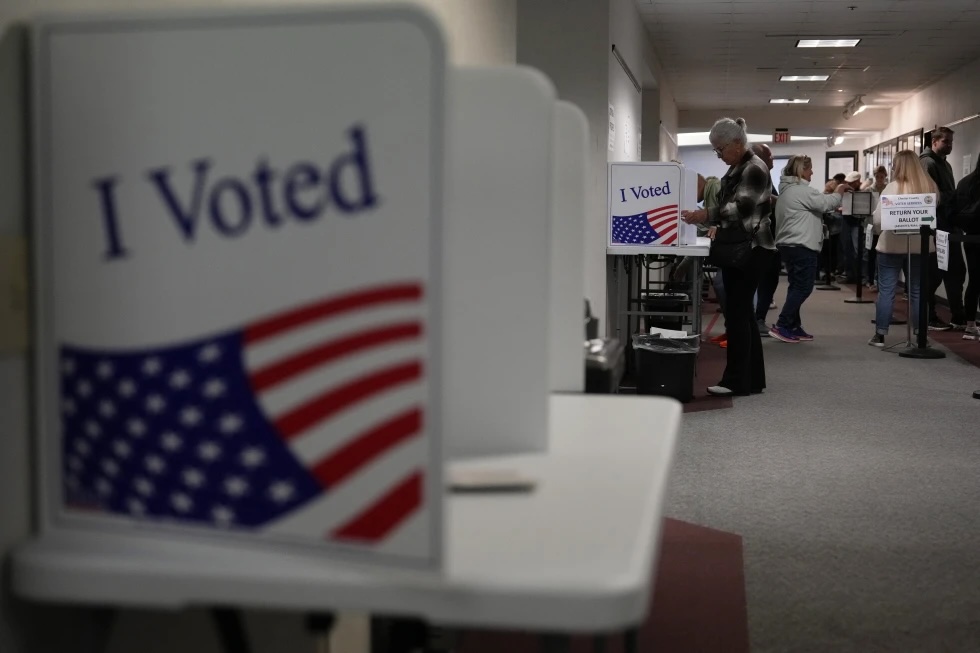
This article is a part of Every Voice, Every Vote, a collaborative project managed by the Lenfest Institute for Journalism with lead support from the William Penn Foundation, and additional funding from Lenfest, Comcast NBC Universal, the John S. and James L. Knight Foundation, Henry L. Kimelman Family Foundation, Judy and Peter Leone, Arctos Foundation, Wyncote Foundation, 25th Century Foundation and Dolfinger-McMahon Foundation.
With the election less than a week away and Pennsylvania a key swing state, voters are under pressure to arrive at the polls fully informed.
Voters will decide on issues running the gamut from who the next president will be, to the future of tech initiatives in the commonwealth.
Candidates running in different races for positions in the US Congress and statewide attorney general bring varied perspectives on innovation policies locally. With hot topics like the Tech Hubs initiative, the CHIPS and Science Act and a slew of Governor Josh Shapiro-led projects, who gets elected could have a major impact on future tech initiatives.
Below is a breakdown of the major party candidates in Pennsylvania races that are likely to have a significant impact on tech policy, including the regulation of new technologies, the commonwealth’s energy sector and consumer protections.
US Senate
A US senator can craft, propose and vote on policies that shape the landscape of innovation and technology. These representatives can influence funding and regulations that can encourage or hinder entrepreneurial growth and technological advancements.
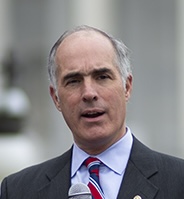
In Pennsylvania, it’s an open race to decide who will represent the commonwealth for the next six years alongside current Senator John Fetterman.
A three-term Democratic incumbent who has held the seat since 2007, Bob Casey is currently Pennsylvania’s longest-serving Democratic US senator. Casey previously served as Pennsylvania’s auditor general and treasurer.
Here are the issues that Casey has been vocal about:
Supports regulating AI, data privacy and social media
Casey proposed the No Robot Bosses Act last year. The bill would prohibit employers from exclusively using “automated decision systems.” If passed into law, the bill would require employers to have these systems tested and validated. It would also establish a Technology and Worker Protection Division under the US Department of Labor.
In 2023, Casey also led the Stop Spying Bosses Act. The bill would require employers to disclose and limit workplace surveillance, including using automated decision systems to predict a worker’s behavior unrelated to their job.
Casey also says he supports regulating AI to protect national security and federal regulation of data privacy and social media.
Expanded digital accessibility
In April 2023, Casey announced $204 million in funding from the Capital Project Fund under the American Rescue Plan. With a match of another $200 million from private investments, the funds will be used to expand high-speed internet access to more than 40,000 homes and businesses in Pennsylvania.
Casey also proposed the Section 508 Refresh Act in July, a bill that would require federal agencies to take steps to ensure people with disabilities can use federal technology, including websites.
Advocates for fossil fuels and clean energy
Casey supported the 2022 Inflation Reduction Act, which recently delivered over $24 million to Pennsylvania farmers and small business owners to lower energy costs. An additional $396 million of funds has been allocated to support decarbonization projects among Pennsylvania manufacturers under the act.
Casey has also expressed support for fracking, or drilling for natural resources, because it “creates local jobs and energy independence,” he said in a recent debate. Casey was one of just a few Democratic senators who voted against a fracking ban in 2021.
Dave McCormick, running on the Republican ticket, is a former hedge fund manager and CEO of FreeMarkets, a technology software company in Pittsburgh.
He previously ran for US Senate in 2022 but lost in the primary. McCormick’s platform doesn’t go into specifics about tech policy, but it does spell out his general ethos on innovation. He advocates for improving education in math, science, and engineering, as well as technical skills training.
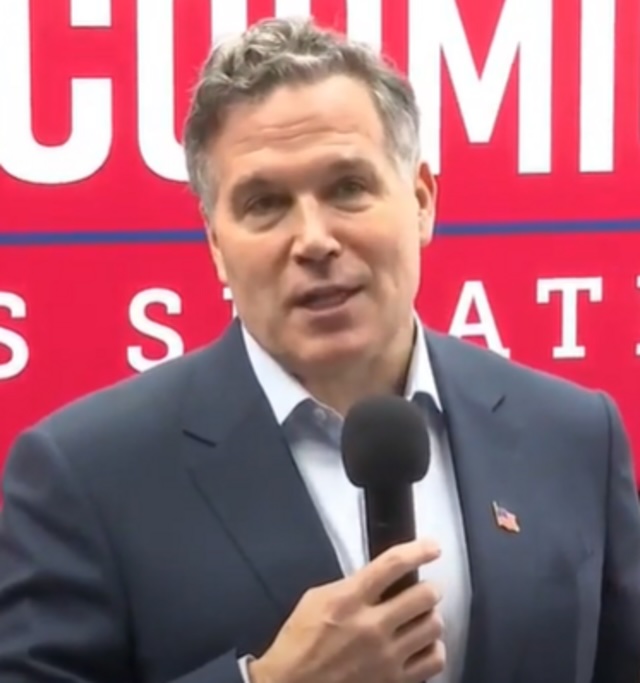
Here are some issues he’s spoken on before:
Avid supporter of cryptocurrency
McCormick has supported cryptocurrency and blockchain in the past. The technologies are “grounded in principles such as individual freedom, limited government and privacy,” he wrote in an op-ed in the Washington Examiner earlier this year.
McCormick also supports the Financial Innovation and Technology for the 21st Century Act, which would direct the Commodity Futures Trading Commission to regulate cryptocurrencies.
Supports regulating social media for teens
McCormick called for a ban on access to social media for children under 16 years old, citing concerns for teen mental health.
Wants to increase fossil fuel production
McCormick has promised to increase oil and natural gas production by streamlining permitting and exporting liquified natural gas.
The race’s third-party candidates include John Thomas of the Libertarian Party, Leila Hazaou of the Green Party and Marty Selk of the Constitution Party.
PA Attorney General
Pennsylvania’s Attorney General can shape the landscape for innovation, technology and entrepreneurship by enforcing laws that protect intellectual property, promote fair competition or ensure consumer protections.
Plus, it can be a pathway toward future political ambitions. Governor Josh Shapiro left the AG role in 2023 to take on his current job. Six candidates currently vie for the position in Pennsylvania.
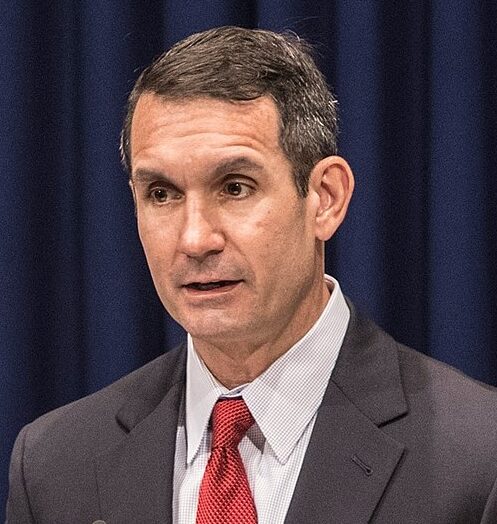
A Pittsburgh native, Democrat Eugene DePasquale has spent most of his career in public office.
He was elected to the Pennsylvania House in 2006 and served three terms. He became auditor general in 2012, serving two terms in office, and he lost a bid for the US House in 2020. He has no prosecutorial experience.
Here’s what he’s previously said about tech and innovation:
Advocate for consumer protections
DePasquale has said he would crack down on businesses that violate consumer rights. He’s also said he would defend workers against wage theft, price gouging and predatory scammers, but did not give specifics on how he would tackle those issues in the AG role.
Wants to investigate social media companies
On AI and social media, DePasquale said there should be more investigations to uncover the damages the tech causes.
“I am very concerned about the mental health of our young people, specifically when it comes to social media and AI,” DePasquale said in a debate earlier this month.
DePasquale said he would not support a ban on social media for teens at this time and would instead work to educate Pennsylvanians about the dangers of social media and AI as attorney general.
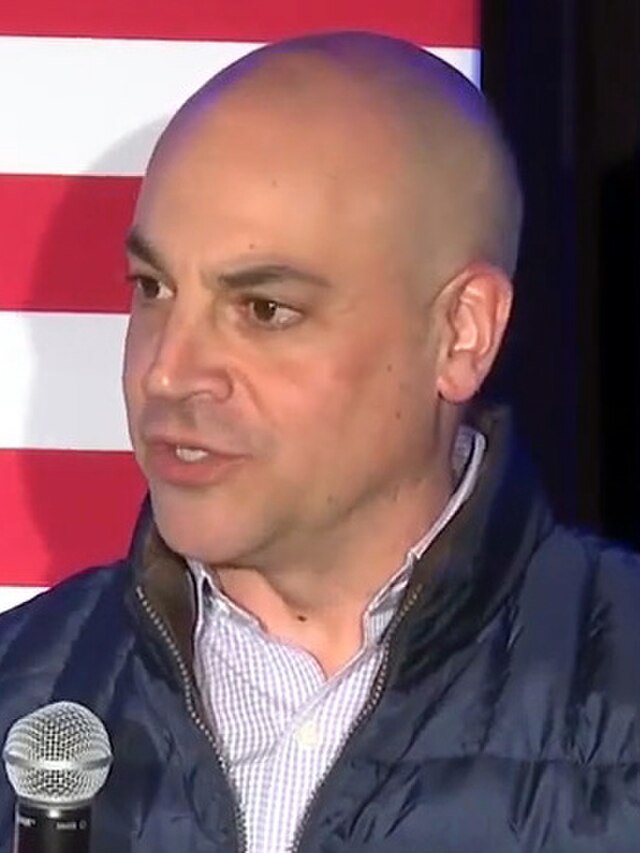
Born in Harrisburg, Republican Dave Sunday is a career prosecutor who has been York County’s district attorney since 2018.
Previously, Sunday worked as a law clerk for a York County Common Pleas judge and was appointed as a special assistant US attorney for the Middle District of Pennsylvania in 2013.
Here’s his stance on business, security and more:
Advocates for consumer protections
Sunday identified emerging technologies, like AI, as increasing the risk of scams or fraud. He said protections for seniors, children and other vulnerable groups need more attention.
“We’ve got to make sure that we are at the tip of the spear technologically as we attack these issues,” Sunday said in an interview with City & State.
Form a cybersecurity team to protect children
In a recent debate, Sunday said Pennsylvania needs to form a cybersecurity team to go after child predators who use tools like social media and gaming systems.
Sunday said he would not support a ban on social media for teens at this time and would instead work to educate Pennsylvanians about the dangers of social media and AI as attorney general.
Help formerly incarcerated people return to work
Sunday has advocated for better opioid epidemic management and lowering recidivism rates to instead help people reenter the workforce. As district attorney, Sunday created a reentry coalition to break the cycle of incarceration for York County residents.
Giving people a chance to rebuild their lives financially after serving time can also benefit employers, Sunday said at a recent forum.
The race’s third-party candidates include Robert Cowburn of the Libertarian Party, Richard Weiss of the Green Party, Justin Magill of the Constitution Party and Eric Settle of the Forward Party.
Pittsburgh’s District 12 US House race
In the race for Pennsylvania’s 12th District, the Democratic incumbent and Republican challenger present different visions for the region’s economic future.
Like Senate representatives, elected officials in the US House can craft, propose and vote on policies that influence the economy and innovation. District 12, which includes parts of Allegheny County, has one open representative position on the ballot.
Democrat Summer Lee, raised in the Mon Valley, previously worked as an organizer for the Pennsylvania Democratic Party. Lee became a state representative in 2019 and later was elected to the US House in 2022.
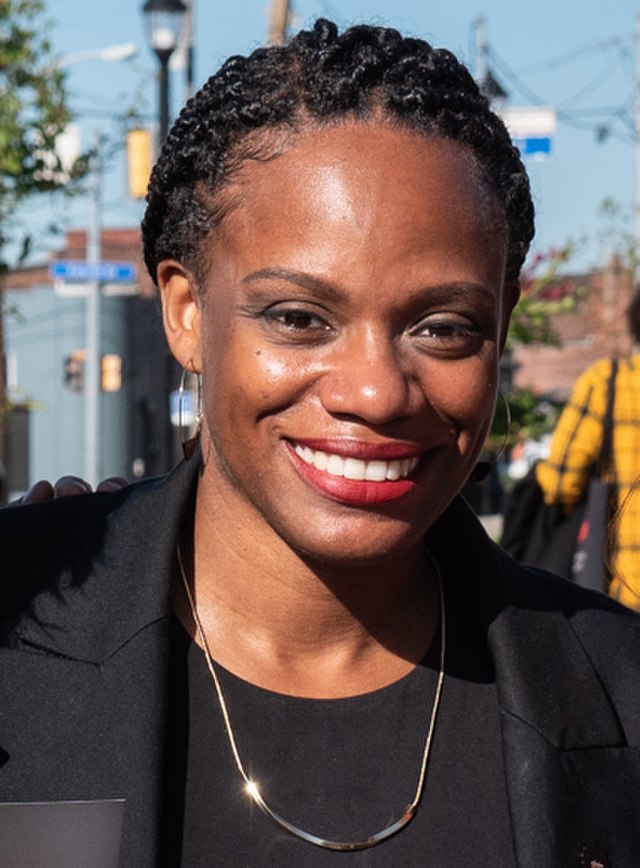
In her time as a legislator, Lee has made worker issues a big part of her platform. She’s supported several bills to raise the minimum wage, expand union labor protections and protect workers’ rights.
Lee has also taken on workforce development issues. Last year, Lee partnered with Governor Josh Shapiro to create workforce training programs for building infrastructure in Pennsylvania.
While serving on the House Space, Science and Technology Committee, Lee negotiated an almost $400 million loan from the US Department of Energy for battery storage manufacturer EOS to create over 1,000 clean energy and union construction jobs in the Mon Valley.
Lee also advocated for over $1 billion in federal funds for clean energy projects in Western Pennsylvania and has previously opposed fracking proposals in her home district. She cosponsored the Future Generations Protection Act, which would ban greenhouse gas emissions from all new power plants, stop hydraulic fracking and ban crude oil and natural gas exports.
James Hayes, the Republican candidate, has a background in business administration and economics. He previously worked for the Federal Reserve Bank of Richmond and Westinghouse Air Brake Technologies Corporation in Turtle Creek.
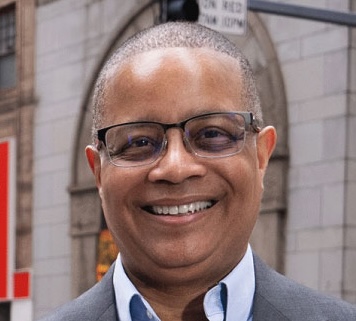
Hayes believes Western Pennsylvania should fully develop its natural gas potential and supports legislation that would streamline the permit process. He said he would use the oversight role of Congress to ensure the Department of Energy is not blocking companies from extracting natural gas in the region.
“We must support industries that create jobs and economic vitality while remaining faithful stewards of the environment,” Hayes said in a Ballotpedia questionnaire.
While there’s not much else publicly available on his approach to tech and innovation, his political platform does include a focus on economic development. He discusses stopping overregulation and protecting manufacturing plants.
Philadelphia’s District 2 and 5 US House races
Philadelphia’s two contested US House races both have a Democratic incumbent and a Republican challenger.
Both Republican candidates have little to no information out there on their tech policy positions, while both Democratic candidates have a more in-depth track record to rely on that spells out their positions.
US House of Representatives, District 2 (Parts of North and Northeast Philly)
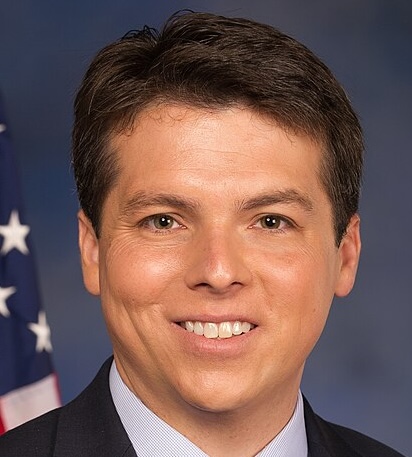
Before his election to the US House in 2015, Democrat Brendan Boyle served in the Pennsylvania House for six years. He now serves as the ranking member of the US House Budget Committee.
During his tenure, Boyle voted in favor of the Relief for Restaurants & Other Hard Hit Small Businesses Act in 2022, delivering $55 billion in funding for Pennsylvania’s restaurants and other small business support.
Boyle also sponsored the Tax Fairness for Workers Act, which would allow for an above-the-line tax deduction for union dues and expenses. The bill would also allow workers to deduct common business expenses, like travel and uniform costs.

Aaron Bashir, the Republican candidate, became a US citizen in 2006 after immigrating from Pakistan.
He has a master’s of business administration from La Salle University and has run for public office several times, including against Boyle. Bashir has said his policies would “advocate for entrepreneurs and small businesses” and create good-paying jobs for working families.
Bashir does not share specific policy proposals on his campaign website.
US House of Representatives, District 5 (Delaware County and parts of Chester County)
Mary Gay Scanlon, the Democrat candidate, worked as an attorney and a Wallingford-Swarthmore school board member before being elected to the US House in 2018. She is now a member of the Judiciary Committee and the Committee of Rules.
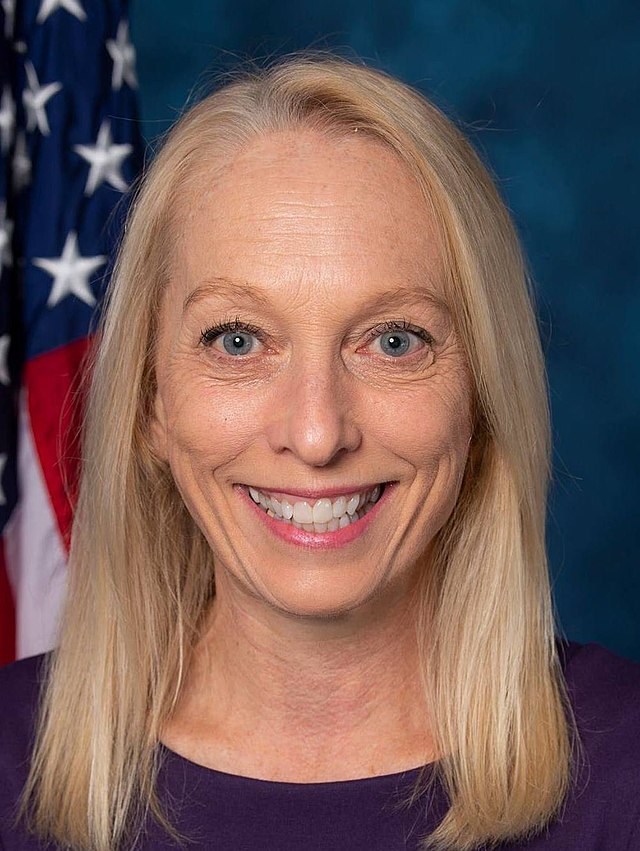
Scanlon supported the Inflation Reduction Act, including $79.6 million for zero-emissions equipment at the local port authority, and the Bipartisan Infrastructure Law, which recently provided nearly $9 million for electric vehicle chargers in underserved communities.
She’s also taken a stance on funding tech and science research. Scanlon cosponsored the America COMPETES Act, a bill to invest billions of federal dollars into research for AI, cybersecurity, computing and biomedical research. It also authorizes a $45 billion fund to support the manufacturing and acquisition of goods and equipment essential for national security.
Her two amendments to the America COMPETES Act included grants for STEM centers and clarifying eligibility for the Regional Innovation Hub Program so that Philly can apply.

Republican candidate Alfe Goodwin is a special education teacher, Army veteran and former Philadelphia police officer.
Goodwin previously ran for state representative in 2022 on the Libertarian ticket. She has not shared any specific tech policy positions on her campaign website.

